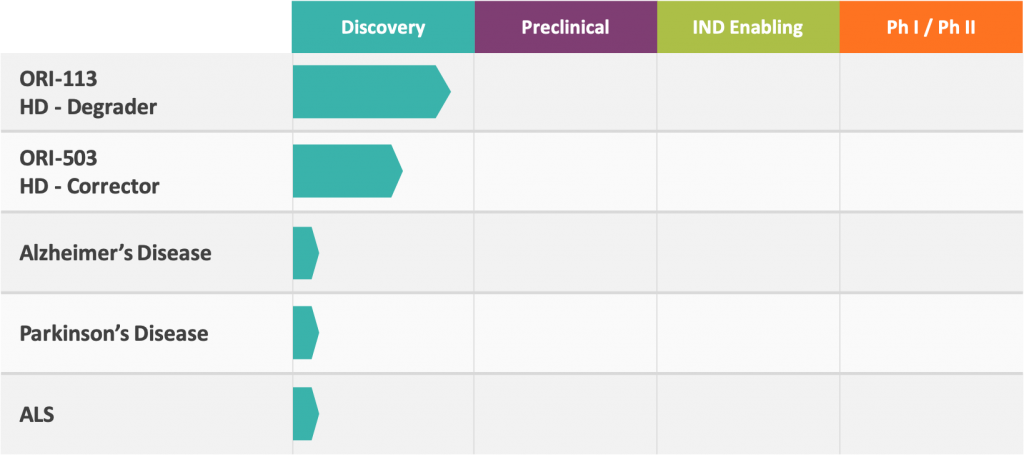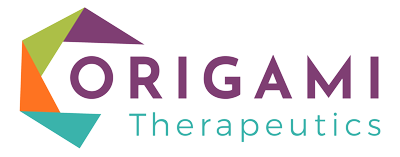
Pipeline
Pipeline

Origami is a Pioneer in Targeted Precision Protein Folding Modulation
Origami Therapeutics is a biopharmaceutical company developing novel protein degrader therapeutics and conformation correctors to treat disease in powerful new ways. Our degrader molecules harness the body’s natural protein degradation system to selectively degrade disease-causing proteins with the goal of completely removing them from the body. The protein conformation correctors prevent toxic misfolded protein forms by stabilizing proper structure and, therefore function. Origami is driven to invent transformative medicines for a wide variety of neurodegenerative diseases with high unmet medical need.
Therapeutic Indications
Huntington’s disease
Huntington’s disease is a devastating, hereditary, neurodegenerative and neuropsychiatric disorder. The earliest symptoms are often involuntary movements and subtle problems with mood or mental abilities. A general lack of coordination and unsteady movements often follows. Physical and mental abilities decline as the disease advances and full-time care is required in the later stages of the disease. The disease most often becomes noticeable in mid-adult life and affects men and women equally.
The pathological effects of the mutation are not limited to the brain, so therapeutics will need to be developed that treat all of the affected organs throughout the body.
The disease stems from genetically-programmed degeneration of brain cells in certain areas of the brain. This degeneration is caused by an autosomal dominant mutation in either of an individual’s two copies of a gene called huntingtin. Huntington’s disease is typically inherited from a parent, however about 10% of cases are due to a new mutation. It is the most common genetic cause of abnormal involuntary movements called chorea, which is why the disease used to be called Huntington’s chorea.
There are no current treatment options that control, stop, or reverse the progression of the disease. Symptomatic treatments can relieve some symptoms and improve quality of life. Huntington’s disease is a rare disease with a global prevalence of around one in 15,000.
